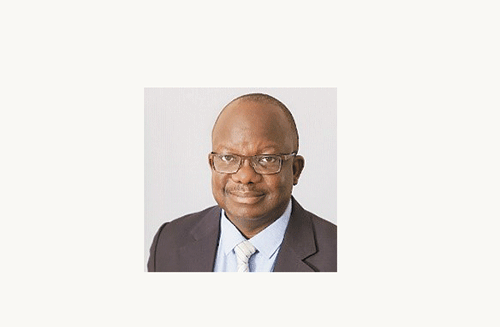Robert Gatonye
Issuing a clean bill of health to corruption-riddled establishments is puzzling. I hold the view that financial auditing excludes corruption from the definition of fraud and by reporting it under the veil of non-compliance with laws and regulations.
Corruption undermines the growth of our economy, demoralises people, and steals the future of our children. There are few harder crimes to tackle than complex frauds rooted in institutionalised and culturally tolerated corruption.
Although fraud is a broad legal concept, the auditors’ interest relates to fraudulent acts that cause a misstatement of financial statements. Extending the scope of audits to cover the grey areas of corruption will increase the cost of audits. However, it is a small price to pay to reduce the haemorrhage of public funds through corruption and fraud.
In terms of the role and liability of the auditor regarding the detection of fraud, reference is made to the case of Kingston Cotton Mills Co. (1896). In that case, Kingston Cotton Mills collapsed in 1894 after the fraud that involved gross overstatement in the past four years of accounts was discovered.
The investors who relied on the auditors and management’s representation sued them for misfeasance (willful and intentional action that injures a party). The judgement on the liability of the auditor by Lord Justice Lopes famously stated in parts:
“An auditor is not bound to be a detective. He is a watchdog but not a bloodhound. He is justified in believing tried servants of the company. He is entitled to assume that they are honest. If there is anything calculated to excite suspicion, he should probe it to the bottom. But in the absence of anything of that kind, he is only expected to be reasonably cautious and careful.”
To decipher that portion of judgement, appointing an auditor by shareholders is to safeguard their interests. Unlike a bloodhound ‘baying for blood,’ the auditor must verify and not detect. Therefore, in case of frauds and errors, the auditor has a duty of reasonable care only.
The scope of an auditor has since extended to include the auditor’s duty of care towards third parties. This was shown in cases of Hedley Byrne & Co Ltd v Heller & Partners Ltd (1964) and Caparo Industries PLC v Dickman (1990). Importantly, there is potential damage for pure economic loss if there is a duty of care.
The fiduciary duty of public servants implores them to carry out their responsibilities in a faithful manner that bestows public trust. Also, the damage of economic loss due to a breach of that duty is compensable.
Auditors are intensively trained professionals bound by a code of conduct and, their profession is highly regulated.
In Namibia, regulation of audit and auditors falls under the Public Accountants’ and Auditors’ Board (PAAB) created under Act No 51 of 1951.
Recently, academics have a keen interest in the subject of auditing and its potential for fraud detection and prevention. Also, under new standards, the auditor’s consideration of fraud is seamlessly blended into the audit process and continually updated until audit completion.
Premeditated corruption is likely not to leave any telltale signs in the records of an organisation. Therefore, to uncover corruption, the auditor ought to put more emphasis on fraud detection.
Auditing is very technical but suffices to say it’s risk-based in the least. Therefore, an audit will have a quantum for risk manifested in materiality or the relative size of an amount for misstatement. It is common basing materiality on pre-tax income. For example, if you make a pre-tax income of 100 million, 5% materiality will be 5 million. If you reduce materiality to 2.5%, then it becomes 2.5 million.
More audit procedures will be required when the materiality number is small. Therefore, reducing the materiality number increases the chance of fraud detection but increases the cost of auditing.
Auditing has the potential of reducing corruption and fraud. In achieving that, audit procedures will be more intense and the scope will increase. Despite higher audit fees, it will be a small price to pay compared to the billions of public funds saved. Lastly, auditing allows for organisations to be recognised with anti-corruption certifications.
*Robert Gatonye is pursuing a doctorate in business administration (finance) at the Namibia Business School (NBS); he is an ICT expert and a certified public accountant (CPA).


